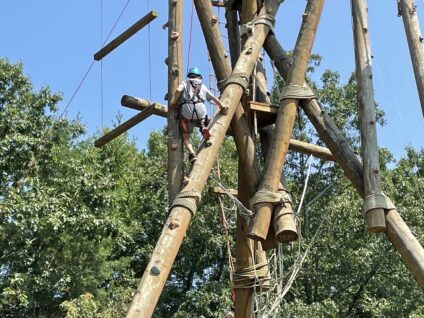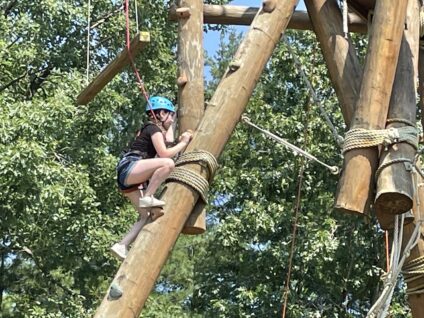Ropes: Overcoming Challenges, Learning Torah
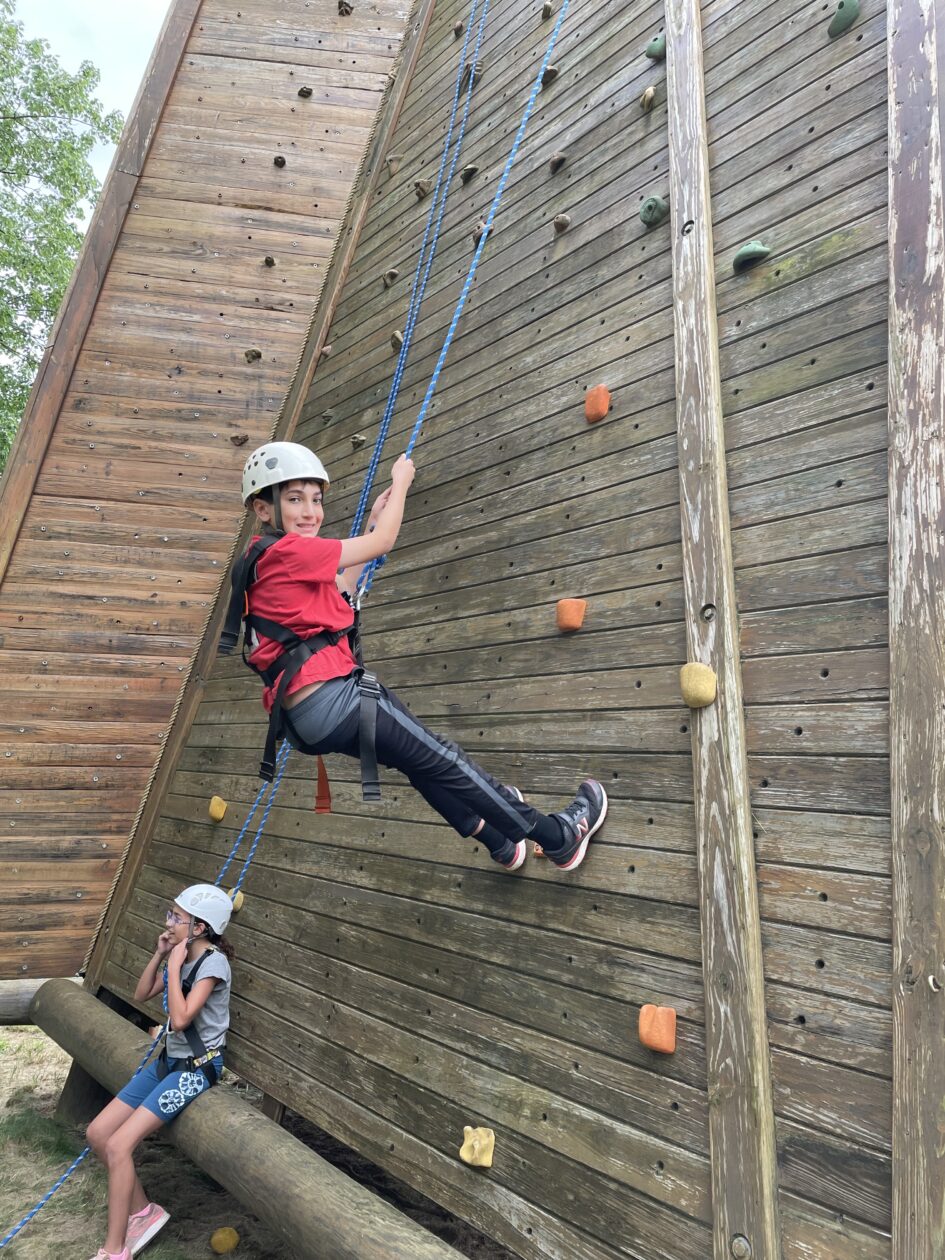
Ropes is an exciting and popular activity as camp – and for most chanichim (campers), a very different way to challenge themselves. To Rutie MacKenzie-Margulies, Rosh Ropes for Machzor Shenei (Second Session), Ropes is about “safe risk-taking.” The goal is to see chanichim challenge themselves. For some chanichim, it is about overcoming a fear of heights. For other chanichim, it is about facing and overcoming new challenges on the two Ropes structures, the climbing wall and the Alpine Tower.
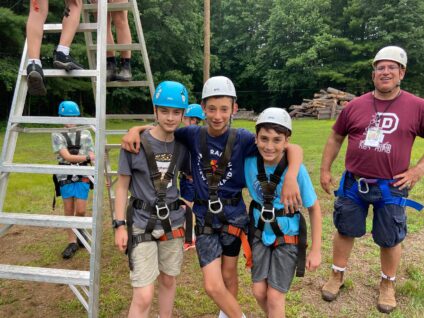
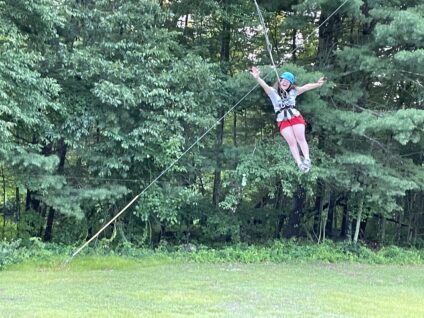
Younger chanichim typically begin with the climbing wall, where they spend a few days ascending the three wall faces, which present different levels of challenge. Younger chanichim who have mastered these challenges, along with older chanichim with some experience, will then try to tackle the various challenges on the Alpine Tower. This, too, has three separate challenges with different levels of difficulty. Once these challenges are mastered, additional challenges are introduced, such as the balance beam challenge and the skill of self-belaying.
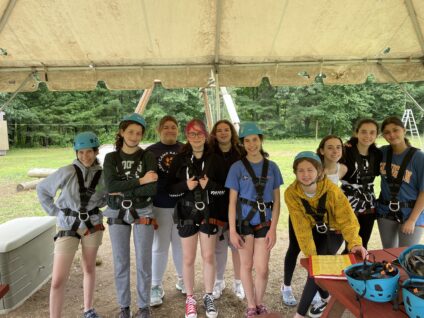

Rabbi Marc Israel, who served as Rosh Ropes during our Machzor Rishon (First Session) and has been a member of the Ropes staff for many years, believes that this part of camp is also very much alive with the spirit of Jewish living and learning. To those who wonder why he takes this role, he responds: “I love to meet the campers in a different role and then have them later find out I’m a rabbi. I find it reduces barriers and allows them to see me in a different light. Then, when I gave a d’var Torah, they are more open and able to listen.”
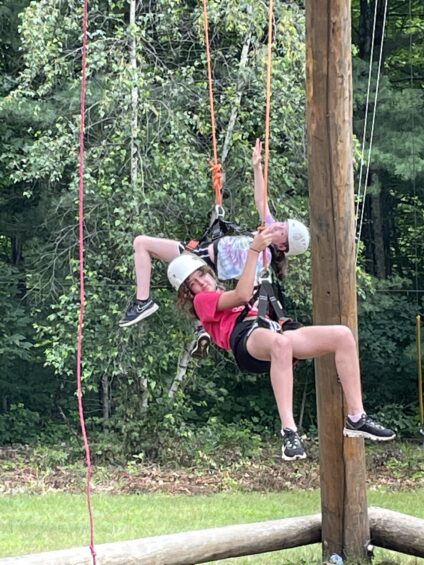
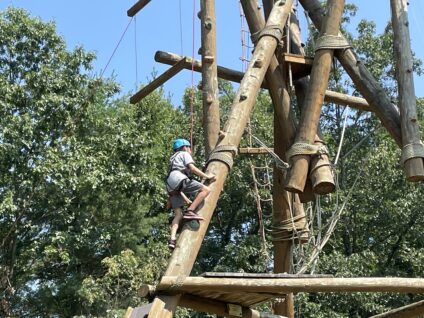
This summer, the camp schedule doesn’t include a stand-alone hour of Jewish education. Instead, because educators are teaching throughout the camp and throughout the day, in Marc’s view they are “freed up to be more creative in their lessons and the campers are more open to learning.” For his part, Marc integrates Jewish learning into Ropes. He remarked:
When I belay a student on the climbing wall with the map of Israel, I can teach them about some of Israel’s geography and topology. When students ask why we don’t climb on Shabbat, I can teach them the laws of Shabbat that prohibit us from tying a knot and what that means. When we review the safety instructions at the beginning of the session, we talk about the importance of pikuach nefesh – saving lives – and shmirat ha-guf, taking care of our body. And while I will never know for sure, I think they hear these lessons more effectively than if I were to teach them from a book.
